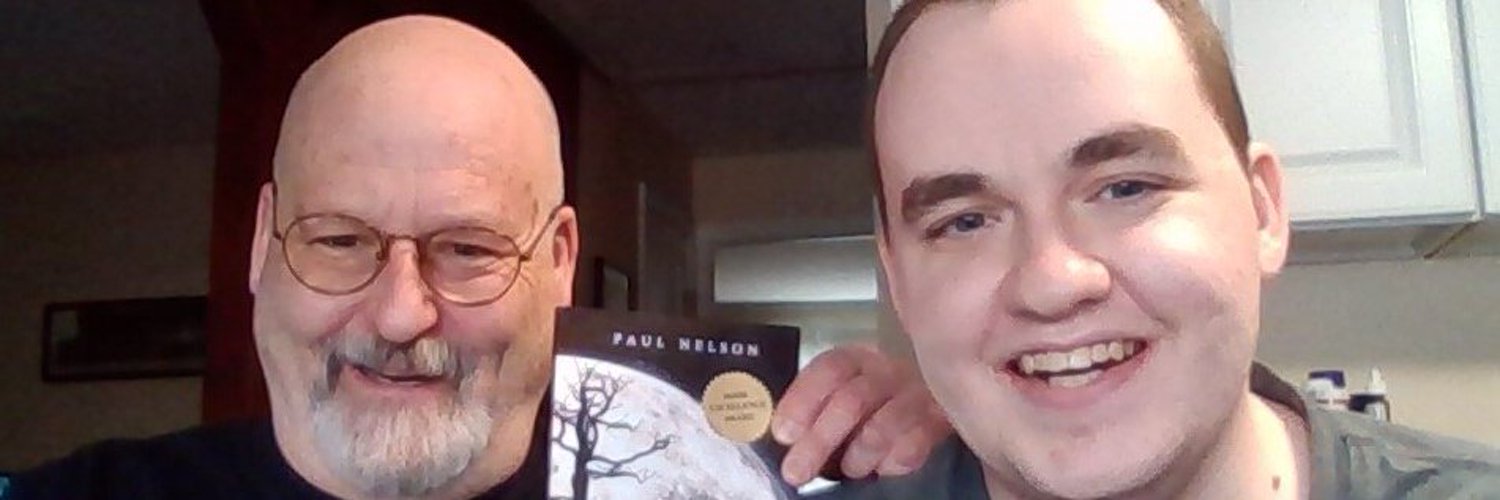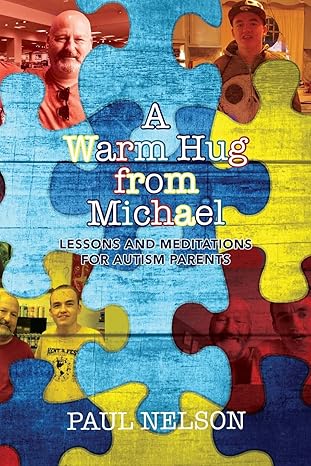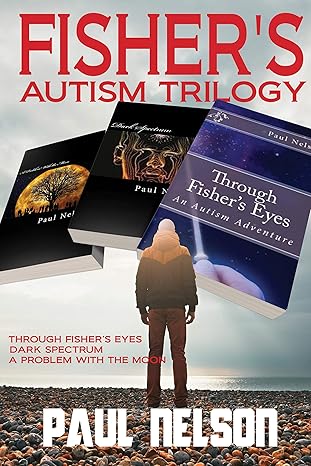
Part 2 MARK STATMAN: MEXICO AND THE POETRY OF GRIEF AND CELEBRATION
Part 2 of my interview with Mark Statman looks closely at Mark’s Latin American poetic influences, his life in Mexico and ends with an extract


I Interviewed Paul Nelson who writes books with Michael, his autistic son. Paul, as the primary carer for Michael for 27 years, has a deep intuitive knowledge of autism. He says: “Spend time with mentally challenged people and you will find that they have much to teach us about life.”
Leslie: How do you write your Autism Fantasy Fiction in collaboration with your non-verbal son? How do you communicate and shape the stories together?
Paul: Although Michael can use a few words, we are very connected mentally. I’ve spent almost 27 years getting into his head… what bothers him, what makes him happy, how is he feeling, etc. So, I spend all of our time together observing him. As a former teacher, I had to do this with my students. Many of our stories contain bits of autobiographical material, like the time Michael locked me in the basement nude. I needed to take a shower and realized some of the clothes I needed were downstairs in the drier. He was feeling mischievous, so he waited until I ran downstairs and locked the door. Most of our writing contains a lot of our life together.
Leslie: You say: “All of our books include a lot about us, and our life adventures with autism.” Can you describe the most important ‘adventures’ that helped you share & understand Michael’s world?
Paul: At age six, Michael had to switch from the regular classroom to a special education class setting. This hurt a bit at the time; however, it caused me to fully embrace that I had a son who would need lifelong help. I also began teaching special education music classes. This provided me with the opportunity to observe all types of mental challenges. I learned more in one day with Michael and his special needs friends than I did in four years of college.

Leslie: How do you change the content and style of your books according to the age you’re writing for?
Paul: My books for younger readers are written in more of the speech patterns an autistic person might use. It’s not all-inclusive, but autistic people sometimes have different ways of putting sentences together, so I tried to copy that. It’s a very simple style. My books for older readers have some of that but are written in a more conventional style. I want kids (and adults) to understand that people with mental disabilities may communicate differently than most of us.
Leslie: How has your enthusiasm for comedy, such as George Carlin’s seven dirty words, kept you open to new challenges? What made you an independent thinker and non-conformist?
Paul: George Carlin was an important person. He was really my life mentor. I had difficulty fitting in when I was in school. I related to George’s humor, but most of all I related to his message of questioning everything. He turned me into an outsider looking in. That is crucial for a special needs parent. You MUST accept the fact that your life will be different than the “norm.” Autism dictates what I can do and when I can do it. That has made me realize that SO many people waste so much time worrying about foolish, unimportant things. Michael, and other people with mental challenges, taught me to appreciate each moment. Happiness isn’t in the future. It’s right now. I’ve taken a Zen approach to life. I don’t always succeed, but I always try to enjoy every moment-good or bad.
Leslie: What qualities does a long-term caregiver like yourself need to possess?
Paul: Patience is vital. As I mentioned earlier, one who is a caregiver must accept the fact that they come second. The person you are caring for is your prime consideration. You also have to find ways to keep yourself healthy. I eat carefully and walk every day when Michael is at his day program. (M-F mornings) You also must contain anger. When you see how mentally challenged adults are treated as second-class citizens, or worse, by the government and many people, you can’t go into a rage, even though you would like to. Again, patience is vital.

Leslie: What are your top tips for relating to people with autism?
Paul: Don’t talk down to them. Most people who are mentally disabled understand what is being said. Don’t talk to them like babies. Treat them with respect. Spend time with mentally challenged people and you will find that they have much to teach us about life.
Next week I interview Rolando Garcia about why we should respect science, and how it works.
ABOUT LESLIE TATE’S BOOKS:

Part 2 of my interview with Mark Statman looks closely at Mark’s Latin American poetic influences, his life in Mexico and ends with an extract

I interviewed international poet and translator Mark Statman about Volverse/Volver, his 14th published collection. Mark, who has won national arts awards, is Emeritus Professor of Literary

I interviewed Lisa Dart, finalist in the Grolier, Aesthetica and Troubadour Poetry Prizes and author of The Linguistics of Light (poems, Salt, 2008), Fathom (prose

I interviewed writer Julia Lee Barclay-Morton about her experience of autism. Julia began as an experimental dramatist in New York, moving to the UK to

I interviewed Gillean McDougall from Glasgow, who edited the collaborative projects Honest Error (on Charles Rennie Mackintosh and his wife Margaret Macdonald) and Writing the
| Cookie | Duration | Description |
|---|---|---|
| cookielawinfo-checkbox-analytics | 11 months | This cookie is set by GDPR Cookie Consent plugin. The cookie is used to store the user consent for the cookies in the category "Analytics". |
| cookielawinfo-checkbox-functional | 11 months | The cookie is set by GDPR cookie consent to record the user consent for the cookies in the category "Functional". |
| cookielawinfo-checkbox-necessary | 11 months | This cookie is set by GDPR Cookie Consent plugin. The cookies is used to store the user consent for the cookies in the category "Necessary". |
| cookielawinfo-checkbox-others | 11 months | This cookie is set by GDPR Cookie Consent plugin. The cookie is used to store the user consent for the cookies in the category "Other. |
| cookielawinfo-checkbox-performance | 11 months | This cookie is set by GDPR Cookie Consent plugin. The cookie is used to store the user consent for the cookies in the category "Performance". |
| viewed_cookie_policy | 11 months | The cookie is set by the GDPR Cookie Consent plugin and is used to store whether or not user has consented to the use of cookies. It does not store any personal data. |